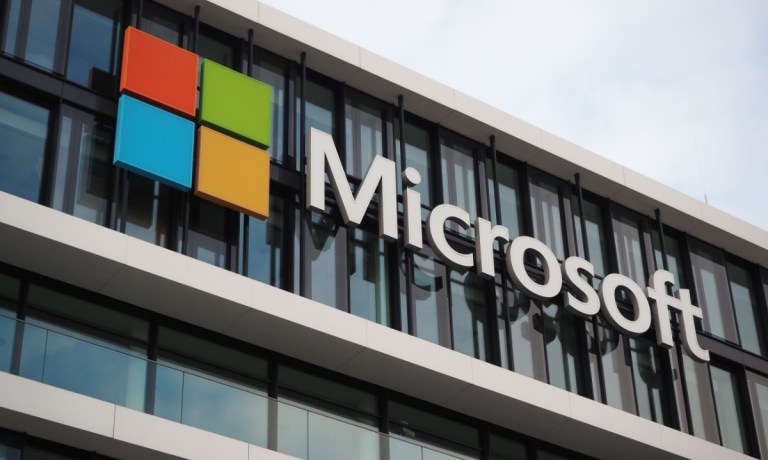Microsoft: Unlocking AI Benefits Will Require Cultural Changes for Enterprises

Digital transformation is the name of the game — and that’s great news for Microsoft.
The company, which reported its Fiscal Year 2024 Q3 earnings results on Thursday (April 25), has seen ongoing enterprise digitization fuel a greater appetite across the business landscape for innovations like artificial intelligence (AI) and cloud services — innovations that Microsoft is more than happy to provide to its customers.
“Microsoft Copilot and Copilot stack are orchestrating a new era of AI transformation, driving better business outcomes across every role and industry,” said Satya Nadella, chairman and chief executive officer of Microsoft. “More than 65% of Fortune 500 companies now use Azure’s Open AI service.”
“This quarter Microsoft Cloud revenue was $35.1 billion, up 23% year-over-year,” emphasized Amy Hood, executive vice president and chief financial officer of Microsoft.
Per its financial results, Microsoft saw a growth of 31% in its Azure unit and said 7% of that total was from AI.
The company’s productivity and business processes segment, which encompasses the Office suite of applications, LinkedIn and Dynamics, also saw impressive gains, generating $19.6 billion, up 12% from the same period last year.
The continued integration of AI and machine learning into these platforms has enhanced their appeal to both individual and corporate users, contributing to their growth.
“It’s important to think about every business function that can be impacted by AI and cloud, and the opportunity is significant,” Hood said.
Read more: Bite-Sized AI: Why Smaller Models Like Microsoft’s Phi-3 Are Big for Business
Microsoft is Scaling Investments in AI Amidst Growing Demand
Microsoft announced Thursday it had beat Wall Street analyst estimates for both its latest earnings and its revenue, and the company’s shares rose around 5% in early after-hours trading.
The tech giant’s ability to outperform amidst economic uncertainties has solidified its position as a leader in the technology sector, showcasing the effectiveness of its diversified business model. Over the past fiscal year, Microsoft’s stock has climbed more than 40%, emphasizing its pole position within the AI arms race.
It’s a position that Microsoft has indicated to investors that it will continue to spend billions on to maintain, with upcoming capital expenditures geared toward establishing the appropriate levels of infrastructure needed to accommodate the booming appetite for AI’s hot technology.
PYMNTS wrote late last month about Microsoft and OpenAI’s $100 billion data center project, which involves an AI supercomputer named “Stargate,” set to launch in 2028.
The company is also investing $2.9 billion into expanding its cloud and AI infrastructure in Japan, as well as launching a new AI hub in London. Microsoft also this month invested $1.5 billion in Abu Dhabi-based AI firm G42.
“Priority one is ensuring that we have the capacity to support our per-user AI and cloud products,” Hood said.
That’s because embracing AI transformation has become a priority for organizations around the world seeking to unlock AI opportunities.
Read more: Microsoft’s ‘iPhone Moment’ Could Come From AI
And as executives repeatedly stressed to investors, the growing appetite for AI and cloud-driven transformations is going to result in a foundational phase shift across the ways in which enterprises operate.
“Culture and process change inside of organizations is crucial … companies have to take a process, simplify it, automate it and then apply these solutions — which requires companies to culturally change how they adopt technology to drive performance,” Nadella said during the call, explaining that an AI Copilot on every desk, every device and across every role is core to Microsoft’s mission to empower every person and every organization on the planet to achieve more.
“We are also taking our own medicine to apply this internally,” he added.
Executives on the call pointed to a new $1.1 billion, five-year strategic partnership announced Tuesday (April 23) between The Coca-Cola Company and Microsoft to accelerate cloud and generative AI initiatives as an example of both the growing demand for AI-led enterprise optimizations.
Through the partnership, the companies will jointly experiment with groundbreaking new technology like Azure OpenAI Service to develop innovative generative AI use cases across various business functions. This includes testing how Copilot for Microsoft 365 could help improve workplace productivity, according to a statement from Microsoft.
“Microsoft’s capabilities help accelerate our adoption of AI to create incremental enterprise value,” said Neeraj Tolmare, senior vice president and global chief information officer for The Coca-Cola Company.